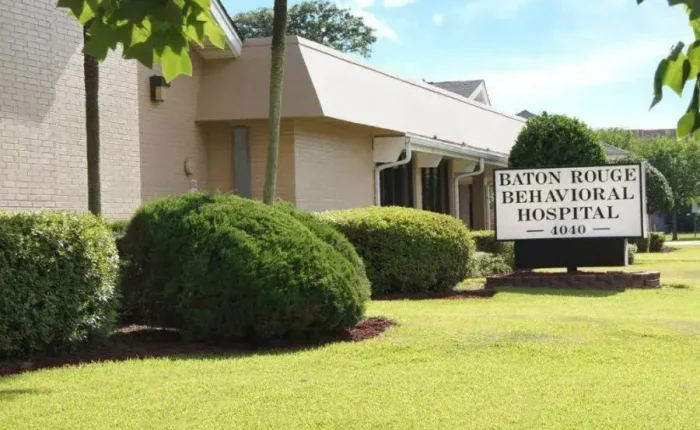It’s no secret that the COVID-19 pandemic has had a significant impact on the lives of Americans and everyone else around the world. In addition to the physical and social changes that have occurred, there have also been serious concerns surrounding people’s mental health during this time. But has there been an increase in suicide rates during COVID?
New studies on suicide rates during COVID reveal exactly the extent that this pandemic has had on mental health. By looking at these suicide rates during the coronavirus pandemic, we can get a better understanding of who is at risk as well as the types of interventions that need to be in place to keep people safe. As always, the goal is to lower suicide rates during COVID and beyond.
Contents
What Is the Suicide Rate During COVID?

Mental health has been a persistent issue for people living through COVID. Not only has COVID put a strain on people who have pre-existing mental health conditions, but it has triggered mental health crises in the general population. Health anxiety, isolation, and a decrease in mental health services have all contributed to this increase in COVID-related emotional distress.
The Centers for Disease Control and Prevention (CDC) reported that at least 40 percent of adults in the United States struggled with anxiety, depression, trauma, and substance use disorders since the beginning of the COVID-19 pandemic. This data revealed that symptoms of anxiety and depression quadrupled in the beginning months of the pandemic. But at the time of this study, not much was known about suicide rates during COVID.
However, now that it’s been over a year since the first known outbreak of COVID within the United States, more data has been collected on the impact of this virus on people’s mental health. According to research completed by Johns Hopkins Medicine, the suicide rates since COVID have increased slightly in many states across the country.
This research also states that certain demographics of people—such as the elderly, unemployed, and those with pre-existing mental health conditions—were at a higher risk for experiencing suicidal thoughts or attempting suicide. The study lists that there are several key factors that increase the risk of suicide during COVID, including:
- Social isolation
- Financial strain
- Lack of access to mental health treatment
- Long-lasting COVID symptoms
All of these elements can lead to severe mental health distress. And looking at history of past pandemics only confirms these risks. Some experts say that an increase in suicide rates during COVID is inevitable. Other experts state that suicide during COVID might become as detrimental and deadly as the virus itself.
Unfortunately, many people don’t have the necessary coping strategies to recover from mental health crises on their own. Instead, they turn to unhealthy coping mechanisms, such as drinking or using drugs, to numb the pain. This is why it is so important to pay attention to the signs of mental health distress—with the right help, the risk of suicide can dramatically decrease.
COVID Depression, Anxiety, and Emotional Distress Symptoms
Mental health distress can present itself in a variety of different ways. And while there have been higher suicides rates during COVID, this is not the only impact is has had on mental wellness. Specific mental distress symptoms differ depending on the type of mental health condition someone might be going through. That being said, there are some warning signs to look out for. These include:
- Persistent feelings of sadness or hopelessness
- Constant worrying
- Feeling on edge
- Turning to drugs or alcohol to cope
- Finding daily tasks difficult
- Changes in sleeping patterns
- Thoughts of harming oneself or others
- Suicide attempts
If any of the above signs look familiar, you might be at an increased risk for suicide or further mental health harm. As the COVID suicide rate shows, there are serious consequences to not getting the right help in enough time. The only true way to lower suicide rates during COVID is to raise awareness about mental health treatment programs.
What to Do for Mental Health During COVID

The best thing that you can do for your own mental health during the COVID pandemic is to seek treatment at the first sign of distress. This is particularly important for people who already have anxiety, depression, or other mental health disorders. Though it might seem as though mental health resources are limited during this time, the reality is that many treatment programs are still open to help you in your time of need.
Safe and supportive treatment centers can help you to find a path toward recovery from mental health concerns. These facilities often have programs and services specific to your current symptoms as well as ones that cater to your recovery goals.
For example, for people who struggle with both mental health and addiction, a dual diagnosis approach would be most effective in addressing the problem from all sides. Furthermore, crisis care services are available to help those who are experiencing acute mental health crises, including suicidal ideation or attempts. The goal in all of these programs is to stay safe and work toward a happier, healthier state of mind.
Treatment in dual diagnosis, crisis care, or residential programs might look different depending on the specific help you need, but common approaches toward mental health include:
- Cognitive behavioral therapy
- Medication management
- Group therapy
- Recreational therapy
Regardless of the symptoms you might be having, don’t put yourself at risk for future harm. With effective treatment options and an environment of support, you can help to lower the suicide rates during COVID one life at a time.
Mental Health Help at Baton Rouge Behavioral Hospital
One of these safe, supportive facilities that is committed to helping people through COVID and for life-long recovery is the Baton Rouge Behavioral Hospital. Located in peaceful Louisiana, Baton Rouge Behavioral Hospital has all the protocols in place to keep you safe as you work toward your recovery in these frightening times.
In addition to the services mentioned above, we offer so many other treatment services to support you through treatment. While there has been an increase in suicide rates since COVID, we are here to help keep you safe and in control of your mental health. Please reach out to us by phone at Call Baton Rouge Behavioral Hospital: (225) 567-8698 for more information on your options for recovery. Not ready to talk just yet? That’s okay—we’re here to address any of your questions and concerns submitted through our confidential contact form as well. However you choose to break your silence, know that we are here to listen and to help each step of the way.

















